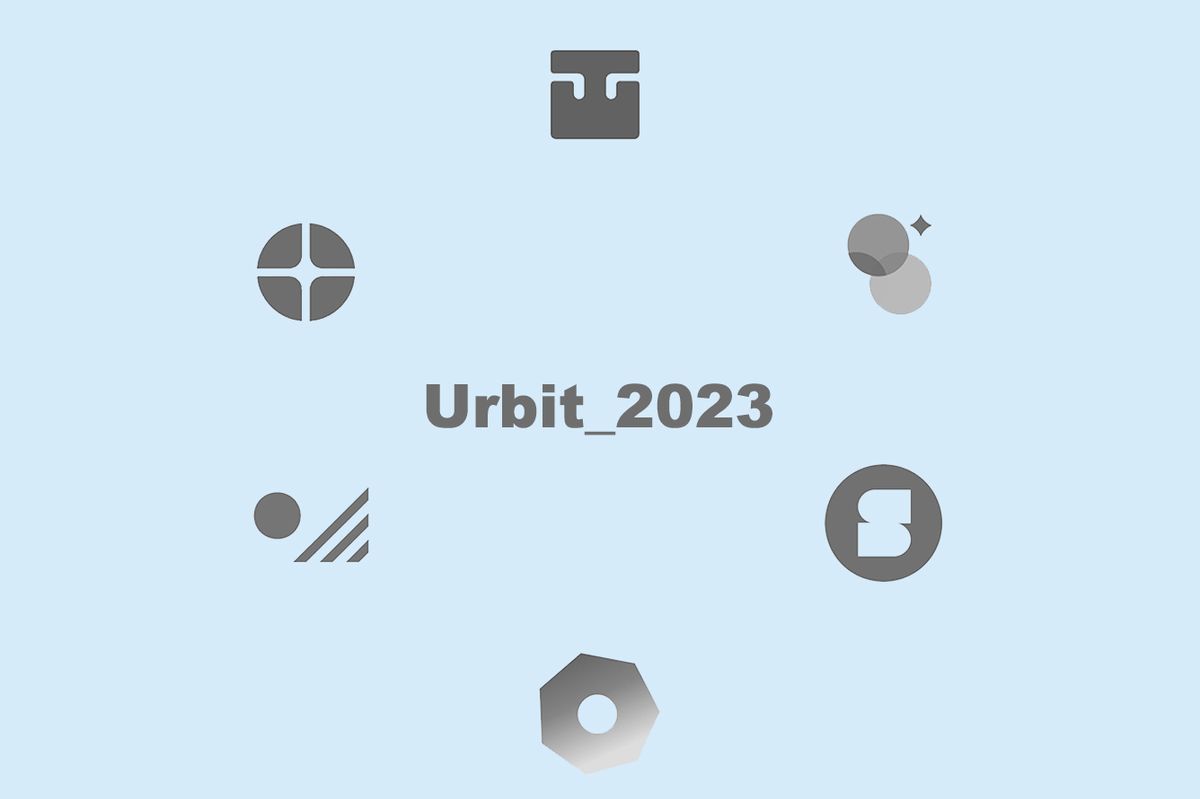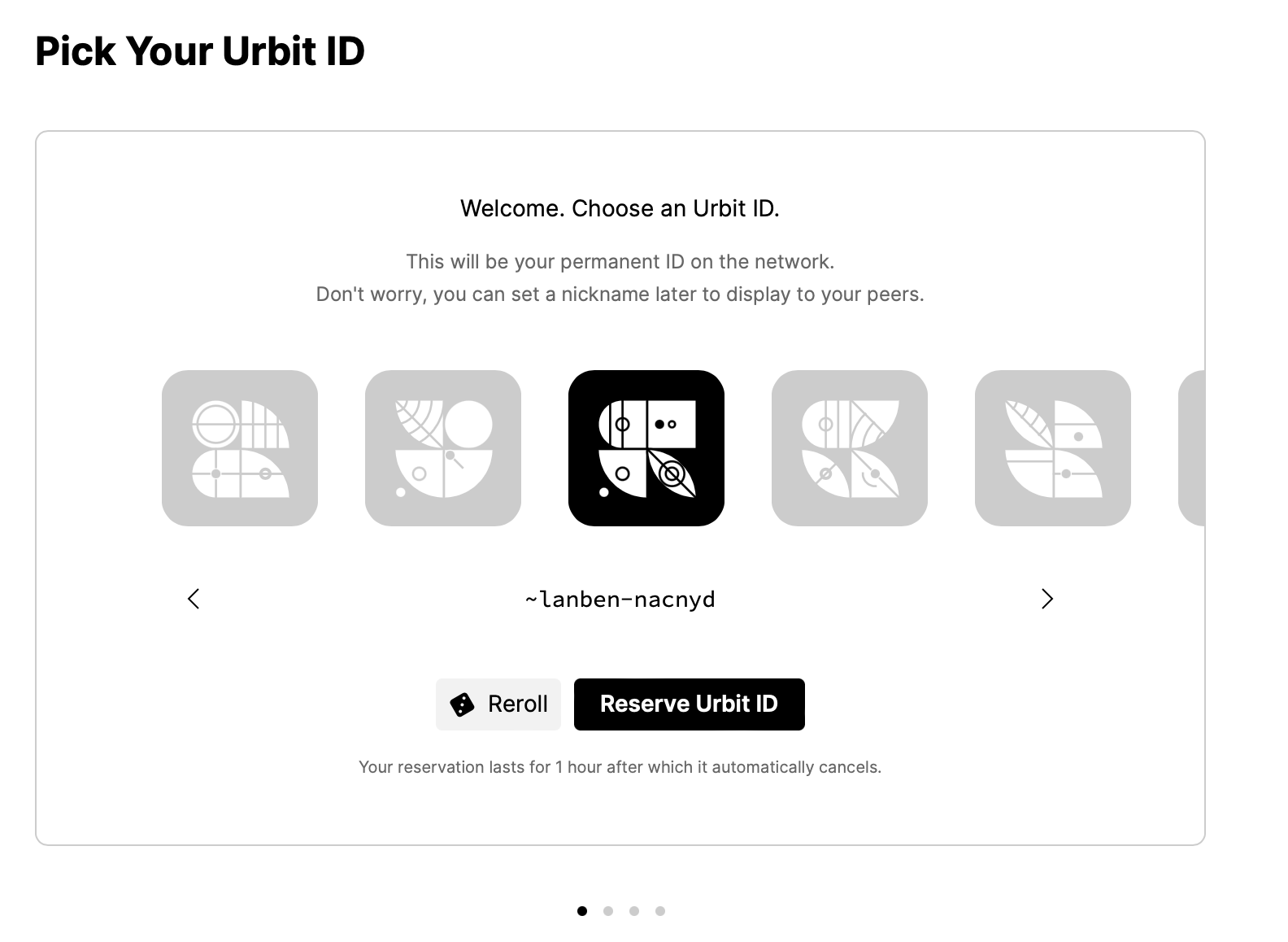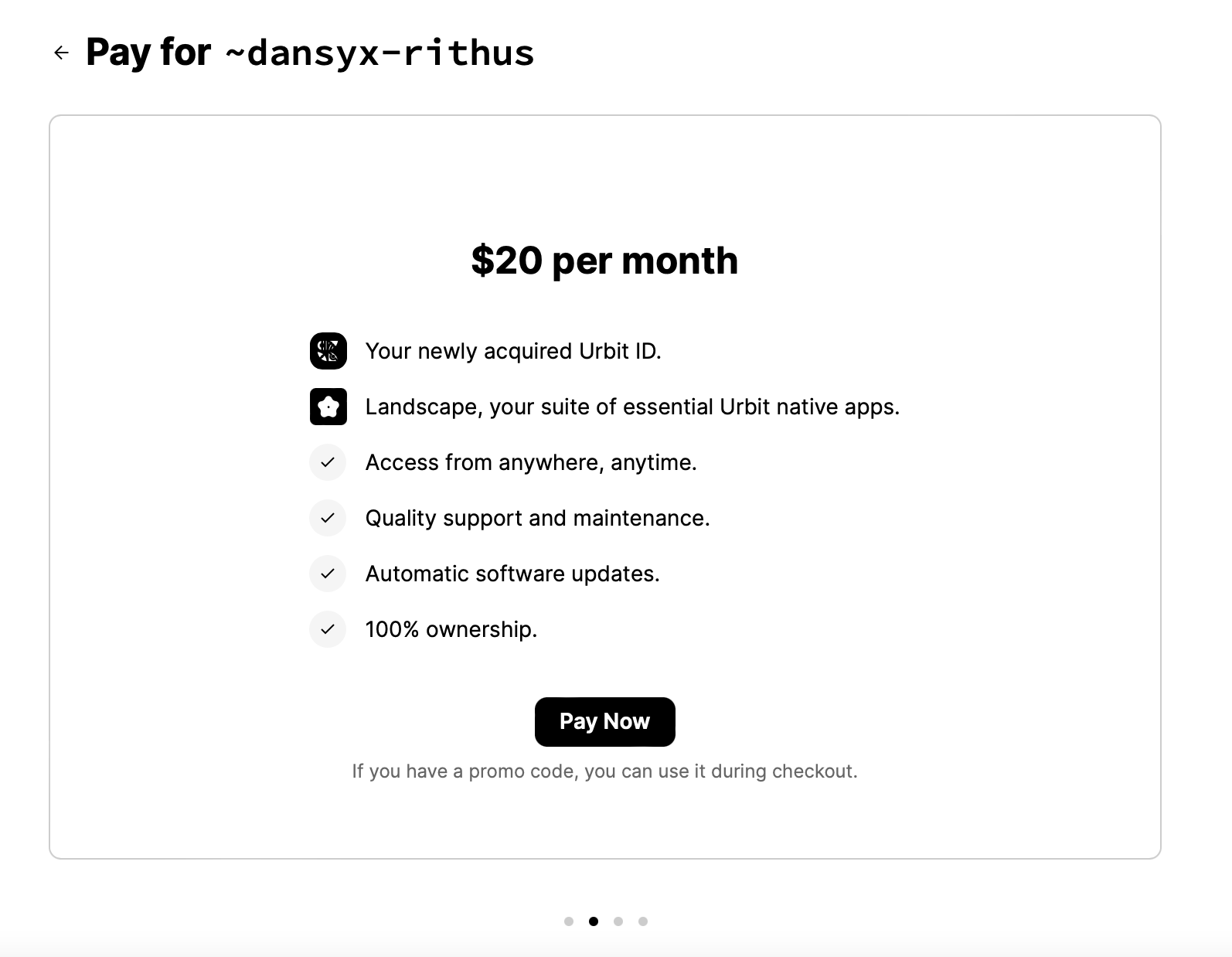
Earlier Port and a native Windows binary enabled users to run Urbit locally without using command-line. It was an officially recommended way to run Urbit. Then it became clear that running Urbit locally via Port was too limited: Urbit runs best as a server, and laptops provide neither a stable running environment nor consistent web-based access from other devices.
Now Urbit gives new recommendations on how to run Urbit. In case the user is not comfortable at the command line they recommend using a hosting provider, who runs your Urbit for you and takes care of any maintenance and updates required.
Tlon is the most popular option. This is the company responsible for creating Urbit itself, Landscape (a graphical web interface), Groups (an application that allows to start, host, and cultivate communities) etc. It let you reserve a nickname (Urbit ID) and use the following features for $20 per month.


Tlon promises that you’ll be ready to use Urbit in five minutes and from that moment on you can connect to the network from any device at any time. Once set up, you’re automatically geared with Landscape.
The current version of Landscape includes Groups, Talk and Small Talk:
- Groups is Landscape's flagship app, bringing together communities to chat, share links, and write notes and long reads.
- Talk is Tlon’s messaging application, available as a Group channel type and now as its own standalone app.
- Small Talk is the iOS mobile version of Talk.
Groups are the very gem of the Urbit community. Here is a short list of the groups that you might find interesting as you start exploring Urbit’s world:
- Urbit Community, or UC, is the “Town Square” of Urbit. This group, unlike most groups on Urbit, is decidedly about Urbit.
- The Marketplace is featuring The Pit, Urbit's first open-outcry market for trading Stars and Galaxies.
- Tlon Public is a hub for the community-at-large to learn about what Tlon is working on, hear from team members on their processes, and see some of the references that influence their work.
- Among other communities that we found interesting are Door.link (music), New Hooniverse (developing on Urbit), Urmetica (Esoteric chat and practice).
If you eventually want to run your Urbit yourself, the hosting provider will let you pack up your node and run it however you want.
The guide for 2023 also includes a description of upcoming apps and new features that include an update for Tlon, Holium’s Realm app, a collaborative desktop computing environment, Tirrel’s Scene, a desktop application with built-in hosting, and Native Planet for the self-hosting enthusiasts.
We will keep an eye on Urbit’s further development, cause we feel that this project might have a bright future, and we are not the only ones:
I've never even booted Linux & I can barely code, yet somehow I have my own personal server running in my house, which I use to serve web pages & talk to thousands of people through a p2p operating system.
— Justin Murphy (@jmrphy) January 19, 2023
2 years ago I said the world is sleeping on Urbit. Even more true now. pic.twitter.com/RK2kZw1AoD

